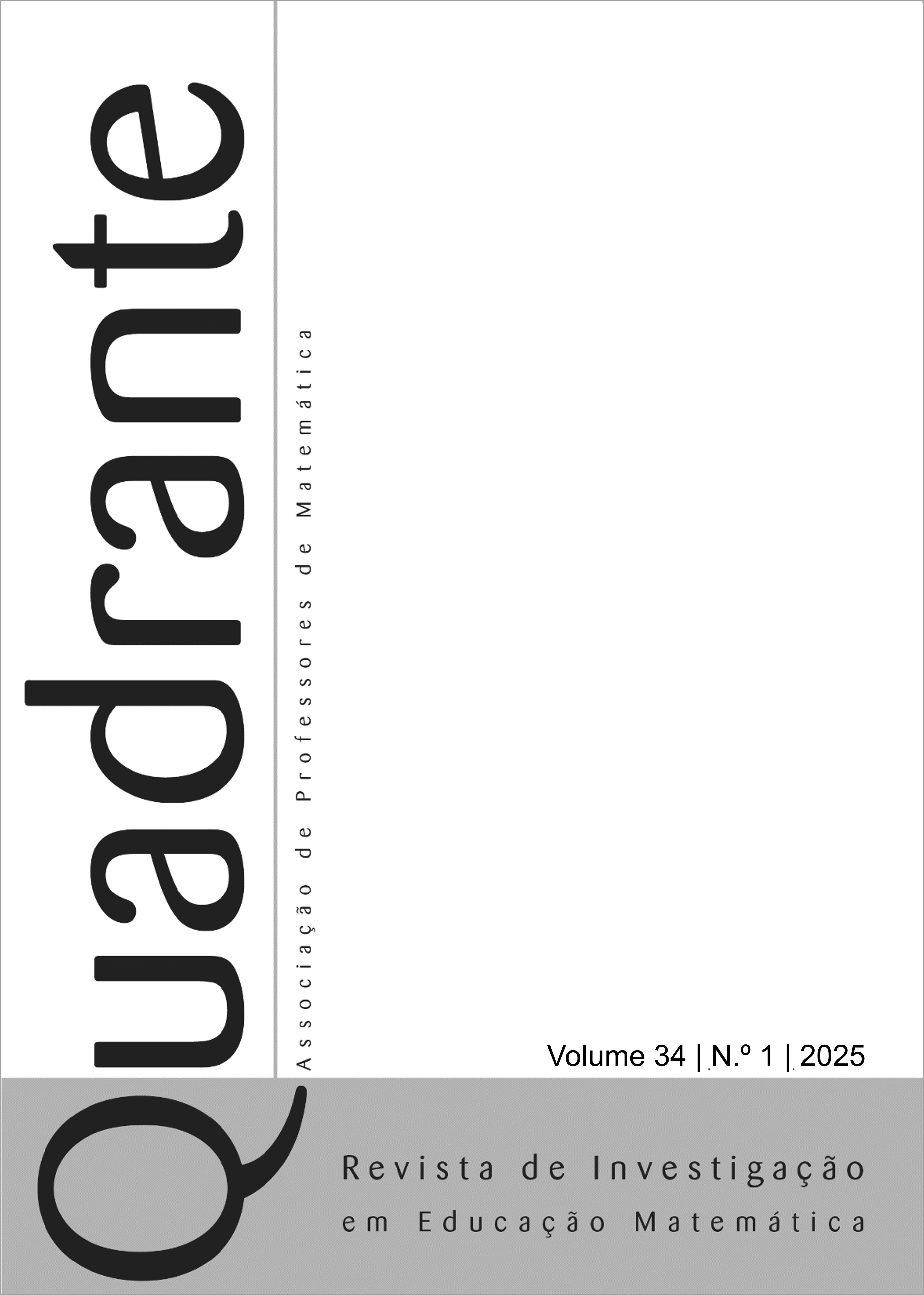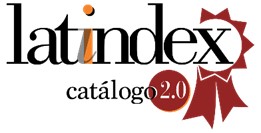Understanding the meaning of design principles in Educational Design Research
DOI:
https://doi.org/10.48489/quadrante.29976Keywords:
design-based research, development research, design research, theoretical-methodological approachAbstract
Educational Design Research (EDR) connects theoretical aspects of educational research with educational practice. The elements that guide this process are the so-called design principles, which are related to the connection between theory and practice. Due to its importance, a necessity to make the understanding of this concept more effective was felt, as well as the aspects related to its use in EDR. In order to do it, a narrative literature review was carried out. It was understood that design principles can be seen, initially, as hypotheses formulated based on information that guides the study to be developed, from the design, intervention, and evaluation. These hypotheses are reflected throughout the process, and they can be modified, refuted, or confirmed, according to the information derived from the practice. Its importance was evidenced by the development of research, reflections on them, and the formulation of new principles based on empirical results.
References
Bakker, A. (2018). Design Research in Education: A practical guide for early career researchers. Routledge.
Barab, S., & Squire, K. (2004). Design-based research: putting a stake in the ground. The Journal of the Learning Sciences, 13(1), 1–14. https://doi.org/10.1207/s15327809jls1301_1
Brown, A. L. (1992). Design experiments: theoretical and methodological challenges in creating complex interventions in classroom settings. The Journal of the Learning Sciences, 2(2), 141–178. https://doi.org/10.1207/s15327809jls0202_2
Cobb, P. (2001). Supporting the improvement of learning and teaching in social and institutional context. In S. Carver, & D. Klahr (Eds.), Cognition and instruction: Twenty-five years of progress (pp. 455–478). Lawrence Erlbaum Associates.
Collins, A. (1992). Toward a design science of education. In E. Scanlon, & T. O’Shea (Orgs.), New directions in educational technology. Springer. https://doi.org/10.1007/978-3-642-77750-9_2
Collins, A., Joseph, D., & Bielaczyc, K. (2004). Design research: Theoretical and methodological issues. The Journal of the Learning Sciences, 13(1), 15–42. https://doi.org/10.1207/s15327809jls1301_2
Design-based Research Collective (2003). Design-based Research: An emerging paradigm for educational inquiry. Educational Researcher, 32(1), 5–8. https://doi.org/10.3102/0013189X032001005
Dolmans D., & Tigelaar, D. (2012). Building bridges between theory and practice in medical education using a design-based research approach: AMEE Guide No. 60. Medical Teacher, 34(1), 1–10. https://doi.org/10.3109/0142159X.2011.595437
Edelson, D. (2002). Design research: what we learn when we engage in design. The Journal of the Learning Sciences, 11(1), 105–121. https://doi.org/10.1207/S15327809JLS1101_4
Edelson, D. (2006). Balancing innovation and risk: assessing design research proposals. In J. Van den Akker, K. Gravemeijer, S. McKenney, & N. Nieveen (Eds.), Educational design research. Routledge.
Fadigas, M. D. (2015). Racismo científico como plataforma para a compreensão crítica das relações CTS: o estudo de desenvolvimento de uma sequência didática [Dissertação de Mestrado. Universidade Federal da Bahia]. https://sucupira.capes.gov.br/sucupira/public/consultas/coleta/trabalhoConclusao/viewTrabalhoConclusao.jsf?popup=true&id_trabalho=2945151
Herrington, J., & Reeves, T. (2011). Using design principles to improve pedagogical practice and promote student engagement. In Proceedings ascilite 2011 Hobart (pp. 594–601). Austrália. https://www.ascilite.org/conferences/hobart11/downloads/papers/Herrington-full.pdf
Hjalmarson, M. A., Parsons, A. W., Parsons, S. A., & Hutchison, A. C. (2021). Addressing publication challenges in Design-based Research. In Z. A. Philippakos, E. Howell, & A. Pellegrino (Orgs.), Design-based Research in Education. The Guilford Press.
Kelly, A. (2003). Research as design. Educational Researcher, 32(1), 3–4. https://doi.org/10.3102/0013189X032001003
Kneubil, F. B., & Pietrocola, M. (2017). A Pesquisa Baseada em Design: visão geral e contribuições para o Ensino de Ciências. Investigações em Ensino de Ciências, 22(2), 1–16. https://doi.org/10.22600/1518-8795.ienci2017v22n2p01
McKenney, S., & Reeves, T. C. (2019). Conducting Educational Design Research. (2ª ed.). Routledge.
McLoughlin, C., & Oliver, R. (2000). Designing learning environments for cultural inclusivity: A case study of indigenous online learning at tertiary level. Australian Journal of Educational Technology, 16(1), 58–72. https://doi.org/10.14742/ajet.1822
Middelton, J., Gorard, S., Taylor, C., & Bannan-Ritland, B. (2008). The complete design experiment: from soup to nuts. In A. Kelly, R. Lesh, & J. Baek (Orgs.), Handbook of Design Research Methods in Education. Routledge.
Newman, D. (1990). Opportunities for research on the organizational impact of school computers. Educational Researcher, 19(3), 8–13. https://doi.org/10.3102/0013189X019003008
Penuel, W. R., Fishman B., Cheng B., & Sabelli, N. (2011). Organizing research and development and the intersection of learning, implementation and design. Educational Researcher, 40(7), 331–337. https://doi.org/10.3102/0013189X11421826
Plomp, T. (2009). Educational Design Research: An Introduction. In T. Plomp, & N. Nieveen (Orgs.). An Introduction to Educational Design Research. SLO - Netherlands Institute for Curriculum Development. https://ris.utwente.nl/ws/portalfiles/portal/14472302/Introduction_20to_20education_20design_20research.pdf
Ponte, J. P., Carvalho, R., Mata-Pereira, J., & Quaresma, M. (2016). Investigação baseada em design para compreender e melhorar as práticas educativas. Quadrante, 25(2), 77–98. https://doi.org/10.48489/quadrante.22934
Reeves, T. C. (2006). Design research from a technology perspective. In J. Van den Akker, K. Gravemeijer, S. McKenney, & N. Nieveen (Eds.), Educational design research. Routledge.
Reigeluth, C. M., & Frick, Th. W. (1999). Formative research: A methodology for creating and improving design theories. In C. Reigeluth (Ed.), Instructional-design theories and models. A new paradigm of instructional theory. Lawrence Erlbaum.
Reinking, D., & Watkins, J. (2000). A formative experiment investigating the use of multimedia book reviews to increase elementary students’ independent reading. Reading Research Quarterly, 35(3), 384–419. http://www.jstor.org/stable/748224
Reis, D., & Amiel, T. (2019). Pesquisa Baseada em Design: Um mapeamento sistemático da produção acadêmica em acesso aberto em Língua Portuguesa. In Anais do VIII Congresso Brasileiro de Informática na Educação (CBIE). http://dx.doi.org/10.5753/cbie.sbie.2019.299
Richey, R., & Klein, J. (2007). Design and Development Research. Lawrence Erlbaum.
Sánchez-Arteaga, J. M., & El-Hani, C. N. (2012). Othering processes and STS curricula: From nineteenth century scientific discourse on interracial competition and racial extinction to othering in biomedical technosciences. Science & Education, 21(4), 607–629. https://doi.org/10.1007/s11191-011-9384-x
Sandoval, W. A., & Bell, P. (2004). Design-based Research methods for studying learning in context: introduction. Educational Psychologist, 32(4), 199–201. https://doi.org/10.1207/s15326985ep3904_1
Santos, A. C. N., & Silva, S. M. (2019). A educação como instrumento de transformação social na contemporaneidade sob a perspectiva de Bourdieu. In Anais do IV Colóquio Internacional de História da África e VIII Semana de Ciências Sociais, Juazeiro (BA). Universidade Federal do Vale de São Francisco. https://www.even3.com.br/anais/semanacoloquio/199085-a-educacao-como-instrumento-de-transformacao-social-na-contemporaneidade-sob-a-perspectiva-de-boudieu/
Santos, J. M. (2017). O ensino da gravitação universal de Newton através da História da Ciência e da argumentação: desenvolvimento e análise de uma sequência didática [Dissertação de Mestrado. Universidade Federal da Bahia]. https://repositorio.ufba.br/handle/ri/24711
Schons, E. F. (2022). Contribuições da Pesquisa Baseada em Design para a construção de conhecimentos matemáticos para o Ensino de Geometria com licenciandos em atividade de Estágio Curricular Supervisionado. [Tese de Doutoramento. Universidade Franciscana]. http://www.tede.universidadefranciscana.edu.br:8080/handle/UFN-BDTD/1077
Silva, D. P. (2016). As dimensões ética e científica na formação para a tomada de decisões sobre o uso de animais nas Ciências em um contexto de Educação CTS. [Dissertação de Mestrado. Universidade Federal da Bahia]. https://repositorio.ufba.br/handle/ri/22017
Silva, M. G., Smania-Marques, R., & Ferreira, H. S. (2022). Mobilização de aspectos teóricos e metodológicos do modelo de reconstrução educacional para apoiar o processo de design de uma sequência didática sobre biodiversidade. Investigações em Ensino de Ciências, 27(1), 173–190. https://doi.org/10.22600/1518-8795.ienci2022v27n1p173
Van den Akker, J. (1999). Principles and methods of Development Research. In J. Van den Akker, R. M. Branch, K. Gustafson, N. Nieveen, & T. Plomp (Orgs.). Design approaches and Tools in Education and Training. Springer.
Walker, D. F. (1992). Methodological issues in curriculum research. In P. Jackson (Ed.), Handbook of research on curriculum. Macmillan.
Wang, F., & Hannafin, M. J. (2005). Design-based Research and Technology-Enhanced Learning Environments. Educational Technology Research and Development, 53(4), 5–23. https://doi.org/10.1007/BF02504682











